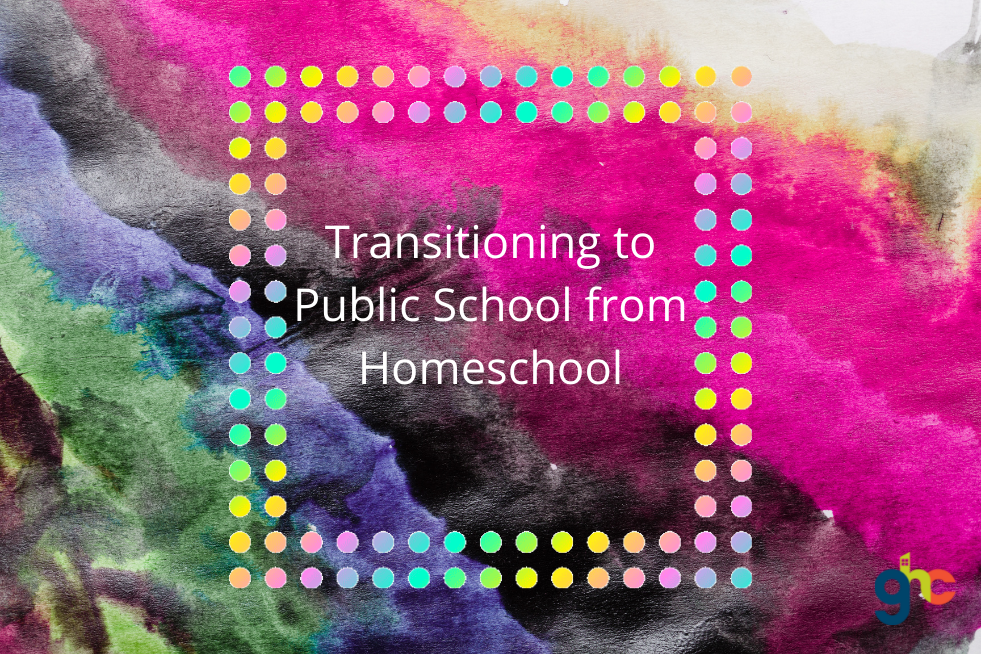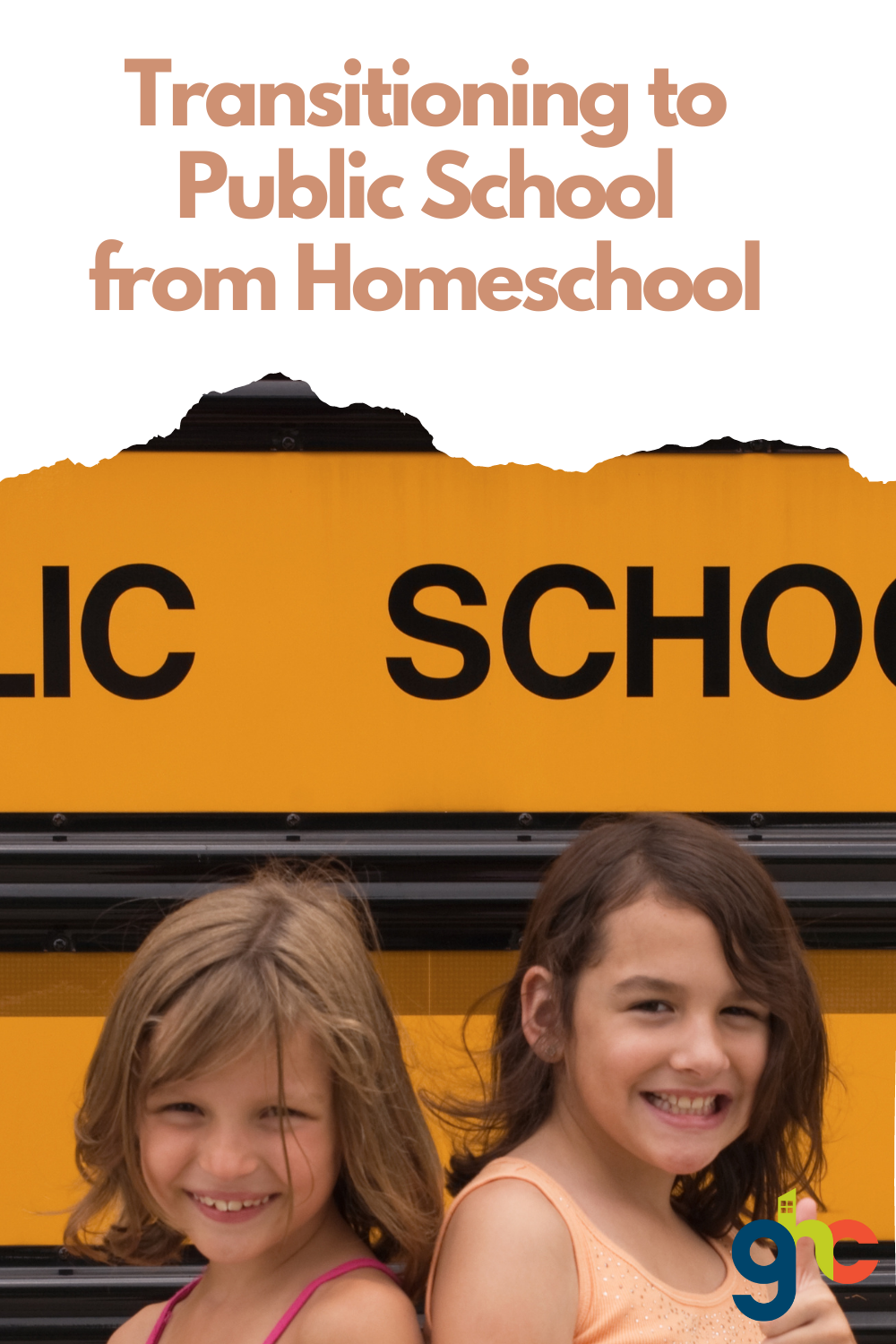According to legend, the Scots poet, Robert Burns, was plowing in the fields when he accidentally destroyed a mouse’s nest, which is needed to survive the winter. The poem that quickly ensued gives us this memorable line: The best-laid plans of mice and men go oft awry. And, that will be true for your homeschool, as well.
Indeed, sometimes things just don’t go as you might have planned them in your own home. But, the ensuing change should not immediately be equated with “failure”. The important thing is that if you wind up having to send your child back to public school, you do so in the best possible way for your child.
Even though you will no longer have complete independence and control of your child’s education, you can certainly meet with the staff at your child’s new school to discuss flexibility with regard to certain things about which you feel very strongly. However, do not expect to have all your desires met, as the system is not prepared to function that way.

Be Ready to Provide Records from Your Homeschool
When your child transitions back into the public school setting, do not expect them simply to take your word about their grade level and course of study. Be prepared to provide records including portfolio pieces, grades, attendance charts, and more about your home education, depending on what state you’re in when transferring back in. All these will be used to decide a current grade level for your child, and may even be combined with placement testing that the school will administer before assigning a grade level to your previously homeschool student.
If you’re transferring from one state to another, you may not even have had to keep the kind of records the new school is requesting. It makes it more difficult when most school officials are completely unaware of homeschooling laws and have only dealt with transfers between public schools. In a case like this, you have a few different options.
You can let them know that you cannot fulfill their requests because you were never required to keep their particular homeschool records in your state. In this case, it’s important to have a hard copy of the homeschool laws for the state in which you were a homeschooling family. As an educator and the principal, of your own homeschool, you can create certain records that will adequately cover the information your child learned during each year of homeschool if you haven’t done so already. Constructing a transcript, with information that is even more detailed than necessary, can be another great way to prepare information about your child’s home education history. If you were required to administer standardized testing during your homeschool, you can also use those scores to reflect the information your child learned during that period.
It’s important, however, to remember that the public school may still assign a grade level that differs from the one you requested for your child. This can be due to a combination of your own records along with testing procedures that the school carries out. If the placement differs from your own, understand that this is common in elementary school, middle school, and high school.
Check for Gaps in Academics for Your Homeschool Child
If you know well enough in advance that your child is going to be transitioning to public school, it can be beneficial to do some placement testing. This actually serves a dual purpose, both of which will be very meaningful. Not only can it be used to establish an appropriate grade level by providing concrete evidence of ability, but it can also help you identify and attend to any gaps you may find.
It’s not that uncommon for academic gaps to be present in the education of a homeschooled child. Homeschoolers often make up for those gaps along the way with supplementation and add-ons. However, public school doesn’t work that way, and gaps can be seen as “being behind” so it’s best to address them as soon as possible. That way, they can truly be prepared for the upcoming school year and aren’t as likely to be scrutinized for what they “don’t” know from their homeschool program.
Transitioning Into High School from Homeschool
It’s quite different when your child is transferring from homeschool middle school to public high school. Some of the related records and testing procedures may be very much the same, but there are specific courses required for diploma eligibility in the public school setting. In homeschool, we can set our own course requirements to earn a high school diploma. However, if you transfer a previously homeschooled student into public high school, they will either have to take the required courses all over again or risk being denied a diploma.
In some cases, especially if you feel your child has covered the equivalent to those required courses, you might suggest that the school allow your child to take an end-of-the-year exam covering that information. The answer you’ll receive will vary, based on the school and their general practices. However, sometimes this can be a good way to prove knowledge without actually having your child take the entire course.
If enrolling your child after the ninth grade, be prepared for the possibility of disappointment with regard to classes already taken, sometimes even including electives. Depending on the specific standards of the public high school your child is transferring into, they may not give credit for transferred work or scores. This can be based on the school’s specific standards for learning, test-taking protocols, or their status on being accredited and can lead to older children having to retake courses they have already covered upon enrollment.
Transitioning to Homework
Homeschoolers are no strangers to work. However, most high school teachers give three to four hours of homework every day. This change can be a little different, and even shocking, but to help your child get used to it, try to assign some work that your child can do independently outside of their regular studies or homeschool curriculum. This can also help with learning to study for tests by giving ample opportunity to practice note-taking. You might also go ahead and bookmark some online school homework helpers for the specific courses your child will be taking in public school. Since you are neither teaching the class nor assigning the homework, you might not be familiar with the information. But there are plenty of sites that can assist, especially in classes where Common Core is king.
One of the best ways to help with homework is to get comfortable with organizational skills. Choosing a planner to utilize for this purpose, along with important schedules, date reminders for tests, and more, can not only help keep everything at a glance but can also boost self-esteem. Deadlines and due dates are important when it comes to homework, and there must be a way to keep track of them all.
Transitioning To New Rules
If there’s one thing most homeschoolers know, it is the “free” spirit of the entire process. However, once in public school, your child will have to adhere to specific rules and standards, some of which may be foreign to them. The truth is, it’s going to take some time fully to accept and adjust to those changes. It can help to start transitioning towards those new rules even before your “last” homeschool school year comes to a close. For instance, help introduce the idea of notebook lesson plan systems for each subject, keeping a journal of homework assignments, and anything else you know in advance will be different for your child.
You might even switch to a more structured schedule, setting a specific time for starting, taking breaks, and stopping. This can help adjust to the changes that will come with catching the bus every morning, knowing that there is a schedule to maintain. Embracing those changes can take an immense level of flexibility, but if you start early, you should be able to have at least familiarized your child with what they can expect.
Transitioning to New Teaching Styles
In homeschool, your child is likely to have had the same teacher - you - for as many years as they were homeschooled. However, new teachers are going to have different approaches and different styles of teaching. For some children, this can be very overwhelming, especially if the teaching style does not necessarily match your child’s learning style. But, to be fair and honest, most children go through this with each new school year in public school.
If necessary, tutoring your child at home while they adjust to the new teaching style can be of great benefit. However, you’ll need to understand the new teacher’s style, because adhering to that style through tutoring can be a huge part of your child’s learning to accept it.
Transitioning Tips That Can Make the Process Easier for You and Your Child When Leaving Your Homeschool
There are some things you just know about transitioning to public school. However, given the emotions and preparations involved, it’s important to keep a few tips in mind to make the whole thing just a little bit easier.
- Arrange for you and your child to meet the teacher or teachers they will be assigned to. The familiarity will help your child feel more at home, especially if they know that you know the teacher too.
- Also, arrange to take a tour of the new school with your child. This can help them to feel a bit less “lost” on that first day, especially if they need to change classrooms over the course of the day.
- Talk with your child about good and bad influences and what to look for that could be a sign that they are potential friends. Although we cannot strictly monitor the relationships our child makes with their peers once in public school, offering these tips can sometimes help them to adjust their sails towards a better outcome.
- Pray for, and with, your child before school, and continue to pray for them during and after. In fact, while you’re at it, pray for the safety and positivity of all the children in that school, and the teachers that teach them. In today’s negative and backward world, this is an often overlooked and necessary element.

In Closing
For those who may need to send their children back to public school at some point, it can still be very beneficial to consider attending a Great Homeschool Convention. You might even find a workshop, featured speaker, or another homeschooling parent who has experience or extra tips that can make that transition go more smoothly.
For those who have to travel further than others to one of our seven regional Great Homeschool Conventions, we offer a few discounts that we hope will help. Look for our hotel discounts, military discounts, and free admission for active clergy members. Take advantage quickly, however, as the hotels do fill up fast.
To find the Great Homeschool Convention location nearest you, CLICK HERE.
To register right now, CLICK HERE.
To read additional blog content, CLICK HERE.
And remember, Great Homeschool Conventions are: Equipping… Encouraging… FUN!
